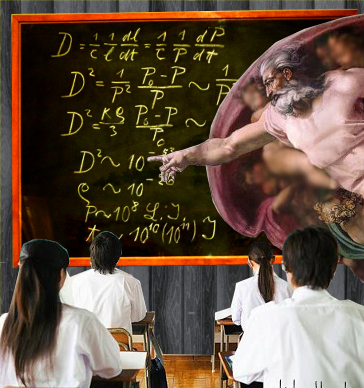Religious research finds faith in the lab
 A worldwide survey has provided some surprising findings about the religious leanings of scientists.
A worldwide survey has provided some surprising findings about the religious leanings of scientists.
“No one today can deny that there is a popular 'warfare' framing between science and religion,” said the study's principal investigator, Elaine Howard Ecklund, from Rice University in the US.
“This is a war of words fuelled by scientists, religious people and those in between.”
The results challenge longstanding assumptions about the science-faith interface.
While it is commonly assumed that most scientists are atheists, the global perspective resulting from the study shows that this is simply not the case.
“More than half of scientists in India, Italy, Taiwan and Turkey self-identify as religious,” Ecklund said.
“And it's striking that approximately twice as many 'convinced atheists' exist in the general population of Hong Kong, for example, (55 per cent) compared with the scientific community in this region (26 per cent).”
The researchers found that scientists are generally less religious than a given general population, but there are some interesting exceptions.
Thirty-nine per cent of scientists in Hong Kong identify as religious compared with 20 percent of the general population of Hong Kong, while 54 per cent of scientists in Taiwan identify as religious compared with 44 per cent of the general population of Taiwan.
Ecklund says these sorts of patterns challenge longstanding assumptions about the irreligious character of scientists around the world.
When asked about terms of conflict between religion and science, only a minority of scientists in each regional context believe that science and religion are in conflict.
In the UK - one of the most secular countries studied - only 32 per cent of scientists characterised the science-faith interface as one of conflict. In the US, this number was just 29 per cent.
Twenty-five per cent of Hong Kong scientists, 27 per cent of Indian scientists and 23 per cent of Taiwanese scientists believed science and religion can coexist and be used to help each other.
In addition to the survey's quantitative findings, the researchers found nuanced views in scientists' responses during interviews. For example, numerous scientists expressed how religion can provide a “check” in ethical grey areas.
“[Religion provides a] check on those occasions where you might be tempted to shortcut because you want to get something published and you think; ‘Oh, that experiment wasn't really good enough, but if I portray it in this way, that will do’,” said a biology professor from the UK.
Another scientist said that there are “multiple atheisms”, some of which include religious traditions.
“I have no problem going to church services because quite often, again that's a cultural thing,” said a physics reader in the UK, who sometimes attends services because his daughter sings in the church choir.
“It's like looking at another part of your culture, but I have no faith religiously. It doesn't worry me that religion is still out there.”
Finally, many scientists mentioned ways that they would accommodate the religious views or practices of the public, whether those of students or colleagues.
“Religious issues (are) quite common here because everyone talks about which temple they go to, which church they go to. So it's not really an issue we hide; we just talk about it. Because, in Taiwan, we have people [of] different religions,” said a Taiwanese professor of biology.
Ecklund and fellow Rice researchers Kirstin Matthews and Steven Lewis collected information from 9,422 respondents in eight regions around the world: France, Hong Kong, India, Italy, Taiwan, Turkey, the U.K. and the U.S.
They also travelled to these regions to conduct in-depth interviews with 609 scientists, the largest worldwide survey and interview study ever conducted of the intersection between faith and science.








 Print
Print